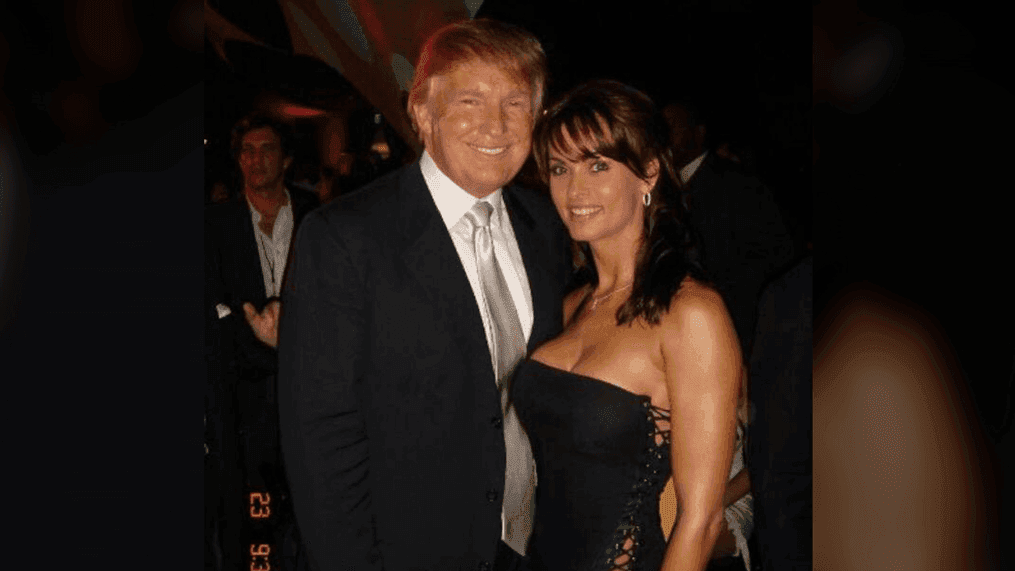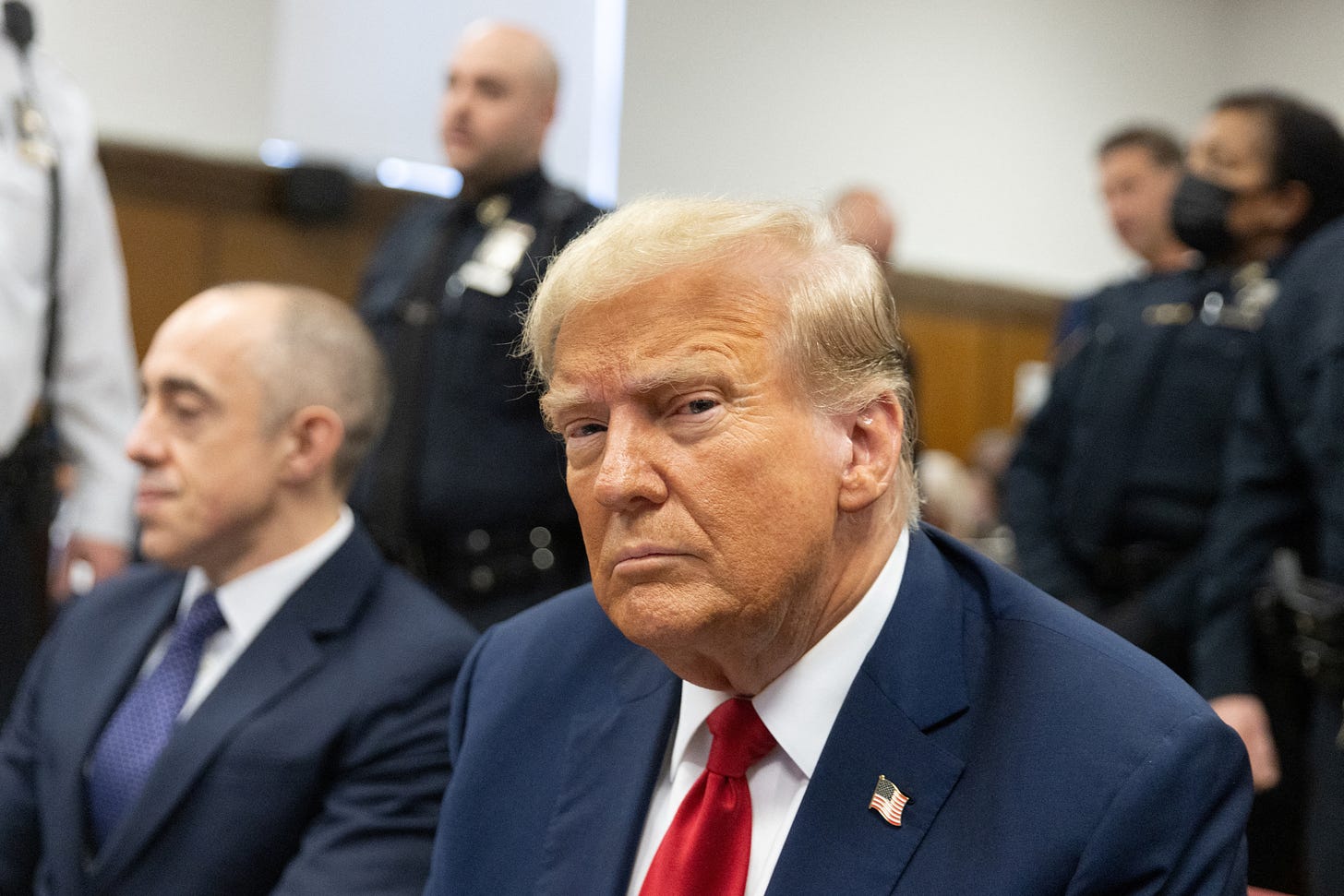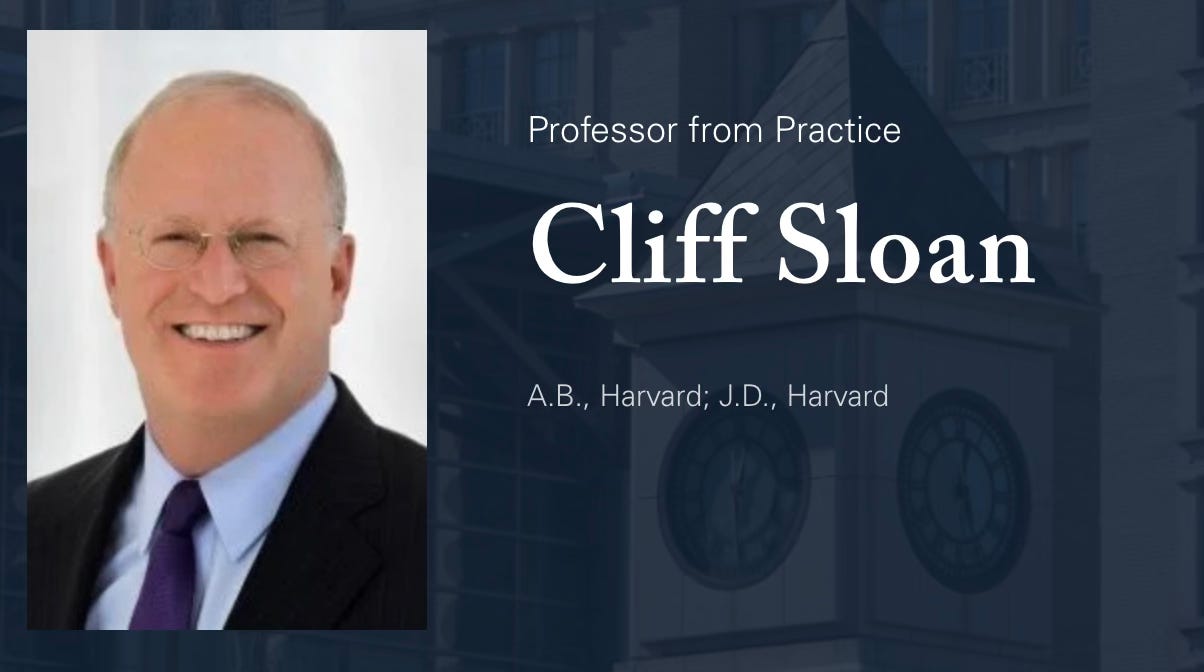Day Seven: David Pecker The Trash Collector
The former publisher of the National Enquirer delivers devastating testimony against Donald Trump
This will be an unusually long post because my old friend and co-author, Cliff Sloan, a Georgetown Law professor who has argued many cases in the Supreme Court, agreed to assume the grim duty of telling you a few things you might not have read about Thursday’s SCOTUS oral arguments on Donald Trump’s claim that he is immune from prosecution for trying to stage a coup. See below.
In the meantime, I’m holding down the fort inside what will very likely be Trump's only criminal trial this year — or possibly ever.
Given the depressing display in Washington, let’s start with something inspiring from New York.
In most trials, jurors saunter in, joking with each other en route to and from the jury box. Here, they march in and out like soldiers with a silent sense of duty, eyes straight ahead as they pass just three feet from Trump, who has been forced to stand and honor these ordinary citizens whose impartiality he attacks outside the courtroom on an almost daily basis. Few, if any, steal even the briefest glance sideways in his direction. It’s as if he’s not there.
Almost all of Day Seven was consumed by the direct examination of David Pecker, the Trash Collector, who turned out to be a star witness for the prosecution. Pecker’s testimony is not directly relevant to Trump’s law-breaking; hush money is not illegal, and he never paid his old mistress, anyway. But the man who published bullshit turned out to be a truth-teller on the stand. With the memory of an elephant, he detailed example after example of Trump’s criminal intent and contextualized the prosecution’s theory of the case.
I had expected that Judge Juan Merchan would rule Thursday on the prosecution's contempt of court motion. Instead, the DA added four more counts after Trump clearly violated the gag order again by going after a witness. And not just any witness, but the one on the stand now. Before the court convened, Trump told reporters, “This is a message to Pecker: Be nice.”
Sure enough, when Pecker wrapped up on direct, he described Trump as “my mentor” and told a flattering story about how in the aftermath of 9/11, he had to shut his Florida headquarters after an anthrax attack that killed an employee. Trump, he said, was the first person to call him in support and helped him on the insurance claim. “Even though we haven’t spoken [since 2019], I still consider him a friend,” Pecker said with evident sincerity.
My first thought was that Trump had intimidated Pecker, and this was bad for the prosecution. Then a couple of lawyers told me that Pecker’s clear affection for his old friend actually made his testimony all the more devastating. Pecker spent the day essentially pre-corroborating part of the story that Michael Cohen will tell but without the malice of Cohen, who will be ripped on cross-examination for, among other things, entitling one of his books, Revenge.
If Tuesday was about Dino the Doorman, Thursday (there’s no court on Wednesdays) revolved around Karen McDougal, the model and former Playmate of the Year who told AMI that she didn’t want to be “the next Monica Lewinsky.”
In September of 2016, Dylan Howard, AMI’s chief content officer, and Pecker’s deputy, learned of her ten-month affair with Trump in 2006-07 from one of his very best sources, Keith Davidson, a well-connected Beverly Hills attorney who also happened to be the lawyer representing both Karen McDougal and Stormy Daniels. We’ll be hearing a lot about — and from — this guy Davidson in the weeks ahead.
Dylan Howard reported to Pecker that ABC was offering McDougal a spot on Dancing with the Stars, but Pecker knew that ABC didn’t practice checkbook journalism and thus wouldn’t pay for the sex story, and he was sure that rumors about a Mexican group offering her $1 million for her story were almost certainly false.
Pecker concluded that he would have to buy the story to protect Trump as he had promised. “I believed the story was true, and it would be very embarrassing to him and to his campaign,” Pecker testified.
Trump placed an urgent call to Pecker, who was attending a business meeting in New Jersey. “Mr. Trump said to me, ‘I spoke to Michael. Karen is a nice girl. Is it true a Mexican group is looking to buy the story for $8 million dollars?’” ($7 million more than the original rumor). Pecker said no. Trump asked, “What do you think I should do?” Pecker testified that he said, "I think you should buy the story and take it off the market.” Trump replied that he doesn’t buy stories because the story always comes out, anyway.
But he did want AMI to buy it. As the deal with Davidson progressed, Pecker was under the misimpression that he would be reimbursed for the $150,000 “lifetime rights” contract that Davidson negotiated, which stipulated she could say nothing about “any relationship with a then-married man.” In exchange for keeping her mouth shut about the affair, McDougal would be allowed to put her name on ghostwritten articles for Shape and other AMI fitness and beauty magazines and possibly anchor red-carpet events for Radar magazine.
Pecker thought all of that was worth $25,000 and that Trump would owe him $125,000. Pecker tried to explain to Cohen “why it was so important to be reimbursed…He [Cohen] basically said at the end of each conversation, ‘Why are you worried? I’m your friend. And the boss [Trump] will take care of it.’”
Of course, the boss never did because that’s the way he rolls. His deadbeat MO goes at least as far back as his repeated practice of stiffing contractors and vendors in the 1980s, as Hillary Clinton pointed out in the first 2016 debate. But having shelled out $150,000, Pecker was determined to get most of the money back.
According to Pecker, Michael Cohen grew alarmed when Pecker, on the advice of an AMI lawyer, told him that the dummy corporations he and Cohen had put together to launder their transactions and the transfer of McDougal’s life rights to Cohen were too risky. They were violating campaign finance laws prohibiting large unreported in-kind or circuitously-routed contributions.
Around this time, I looked through binoculars at the monitor—the only way to see Trump from the front—and saw him cross his arms. One of the courtroom artists who has covered other Trump trials told me that this is usually a sign he is frustrated about some portion of testimony. In those civil cases, that was frustration over possibly losing and owing financial penalties; in this criminal case, when Pecker seemed to be selling him out, the stakes were much higher.
Pecker was right to be getting cold feet. After the scandal broke in 2018, he signed a non-prosecution agreement stipulating that he broke the law between August of 2015 (the first payments to Dino the Doorman) and October of 2016; that McDougal was paid “substantially more than AMI would have otherwise paid for the story”; and that he sought to “suppress the model’s story so as to prevent it from influencing the election.” He did all of this at Trump’s instruction, which is powerful evidence of criminal intent — a key element of the case.
We still don’t have a good explanation for why the feds went after Cohen and Pecker but not Trump. The best guess is that even after Joe Biden won, the DOJ hesitated to prosecute Trump on campaign finance violations out of fear that it could lose at trial, as prosecutors did in a superficially similar case involving former Senator John Edwards. (The deadlock on the Federal Election Commission also played a role).
Even so, Pecker’s knowledge that he was likely breaking campaign finance laws is highly relevant. Trump is on trial for falsifying business records with intent to break other laws, including those regulating campaign spending. This is one of the three aggravating offenses bumping the charges up to felonies. (The others are tax fraud and conspiracy to interfere in an election). Intent is the key. Under New York State law, DA Alvin Bragg didn’t need to indict Trump on those offenses to bring them into his case.
We learned on Thursday that Trump’s interest in AMI went beyond “catch and kill.” He told Cohen to ask Pecker to send boxes full of old editions of The National Enquirer and other tabloids to make sure old stories didn’t come back to haunt him before the election. Pecker testified that Cohen “called me constantly in the month of September to review and send those boxes to his office.”
Cohen told Pecker: “The boss said if I [Pecker] got hit by a bus or the company was sold, he did not want someone else to potentially publish those stories.” Trump was already upset that someone had posted an old National Enquirer headline on Radar Online depicting him as “the Playboy Man.”
Pecker’s testimony helped the jury understand the case’s chronology. On October 8, 2016, one day after the release of the Access Hollywood tape that briefly crippled the Trump campaign (before James Comey’s resurrection of Hillary’s emails bumped it out of the news), Pecker was having dinner in Greenwich, Connecticut, with his wife. He took an urgent call from Dylan Howard telling him that two of his biggest source, Davidson and Gina Rodriguez, an agent, were trying to sell a story about Trump having sex with a porn star named Stormy Daniels.
Howard wanted AMI to buy the story for $120,000. Pecker told him, “I don’t want the National Enquirer to be associated with a porn star…It would be bad at Walmart…I said we already paid $30,000 to the doorman and $150,000 to Karen McDougal. I am not a bank. We are not paying any more.”
Pecker agreed that the story would be “very damaging” on the heels of the Access Hollywood story. After all, “Grab ‘em by the pussy” was not playing well with voters on the eve of the election. “It should be taken off the market,” Pecker told Howard. “If anyone were to buy it, it should be Michael Cohen and Donald Trump.”
When Cohen asked Pecker to buy it, Pecker told him, “I am not purchasing this story. I am not going to be involved with a porn star.” Cohen “said the boss would be furious with me.”
Pecker then predicted that Trump’s ire would soon be directed at Cohen. “I said my suggestion to you is you should buy the story and take it off the market because if you don’t, the boss will be very angry with you.” That’s when the convoluted fraud scheme that is the core of the case went into high gear.
When Trump — through Cohen — tried to stiff Stormy Daniels, Davidson and Rodriguez complained to Howard. “Michael Cohen is going to make you look very bad with [your] two top sources,” Pecker told Howard, who didn’t need the reminder. “You know what it means if you renege.” Reneging, of course, would mean that those great sources would stop providing AMI with stories.
It seemed as if Trump spent the last month before his election chasing down rumors about his former mistress. His body man, Keith Schiller, called Pecker to say, “The boss heard that Karen was speaking to ABC News.” It turned out to be an untrue rumor. Then, on November 4, with early voting already underway, the Wall Street Journal published a story saying that AMI had paid McDougal not to talk before the election. With no audio tape or slam-dunk evidence that the story was true, it didn’t make a big impact. In fact, I had forgotten about it until now. The National Enquirer helping Trump was not exactly stop-the-press news.
Trump was “very upset” on the phone, Pecker said. He was “saying, ‘How could this happen? I thought you had this under control. Either you or your people have leaked this story!” Trump hung up without saying goodbye. Pecker was confident the leak came from the McDougal camp: “I didn’t know if she went off the reservation.” Davidson reported that she was in Arizona and not taking any calls.
Pecker decided to amend McDougal’s source agreement from 90 days to “in perpetuity.” He explained, “I wanted to extend the contract so..she wouldn’t make additional comments about AMI and Mr. Trump.” McDougal did not like the new deal, so she eventually sued. In 2018, AMI let her out of her contract.
All day, Pecker sketched the pattern of the conspiracy by detailing the McDougal payoff—a prelude to the real show— and connecting Trump directly to Stormy Daniels.
A month after the election, Pecker went to Trump Tower, where Trump was meeting with —blast from the past— Reince Priebus, Sean Spicer, Mike Pompeo and James Comey. Cohen told Pecker privately that he “hadn’t been reimbursed on the money owed to him on Stormy Daniels” and hadn’t received his bonus. Cohen asked Pecker if he would speak to Trump about it.
Trump came into the room and started talking to Pecker once more about all the old National Enquirer files. Pecker asked if he could walk the president-elect back to his office.
“I said Michael Cohen is very concerned about his bonus this year. I want you to know he’s very loyal, would throw himself under a bus for you,” Pecker testified. “Trump said Michael Cohen has multiple apartments in my building. He has 15 taxi medallions worth a million a piece. He said don’t worry about it.”
Trump asked after McDougal, the woman he now denies having had any relationship with. “How’s our girl doing?” he asked. Then he told Pecker, “I want to thank you for handling the McDougal situation” and “the doorman situation.”
Just in case there was any misunderstanding about his testimony, Pecker added, “He was thanking me for buying them and not publishing any of the stories and helping the way I did…He said the stories could be very embarrassing.”
Embarrassing for whom? “I thought it was for the campaign,” Pecker told prosecutor Joshua Steinglass in a moment that went straight at Trump’s intent. Trump said, “It would be very damaging to his campaign and election.” Then, in a mild tone, he went further. “His family was never mentioned,” Pecker said, by either Cohen or Trump.
Pecker was invited to the inauguration, but neither he nor his wife went. He did accept Trump’s invitation to a thank-you dinner at the White House, but his wife —who is clearly no fan of Trump — begged off.
After Pecker visited the Oval Office, Trump asked if he wanted to walk with him to dinner. As they passed the Rose Garden, Trump asked again about McDougal. “I said she’s doing well,” Pecker said. “Everything is good.”
In early 2018, Trump’s mind was still on his old mistress. “Donald called, and he said to me, ‘Did you see the Anderson Cooper interview with Karen McDougal…I thought you had — and we had — an agreement with [her] that she can’t give any interviews or be on any television shows.’”
Pecker replied, “I said yes, but I amended it to let her speak with the press. He got very aggravated and couldn’t understand why.”
Tomorrow, I’ll explain how Pecker handled cross-examination.
Cliff Sloan’s take on the SCOTUS oral arguments
One point that should be stressed is that it seems likely that the Supreme Court will (a) reject Trump’s most extreme positions but (b) send them back to lower courts to determine what’s official and what’s private. The problem now is the timing — if that happens, it’s virtually impossible that the case will go to trial before the election. This problem is entirely of the Supreme Court’s making.
SCOTUS could have and should have taken the case in December when Jack Smith sought to go directly there before the Court of Appeals proceeding. That would have left plenty of time for these proceedings. By way of comparison, the Supreme Court decided a death penalty case in January 2021 before the Court of Appeals ruled so that it could make sure that the federal prisoner was executed before Biden took office. It shows that the Court viewed this issue as less important.
Even after waiting for the Court of Appeals, the Supreme Court could have moved much more quickly — both in deciding to take the case and in scheduling it for oral argument.
It’s remotely possible that a combination of the three liberals (Sonia Sotomayor, Elena Kagan, Ketanji Brown Jackson) plus Amy Coney Barrett plus Chief Justice John Roberts could go for a quick decision, saying there are enough private actions (as conceded by Trump’s attorney) to move ahead to trial. But Roberts seemed very inclined to have the lower courts take the first crack at that and sort it out.
And the separate writings of dissenting Justices will take a while to play out. Roberts could crack the whip, but he won’t.
One interesting point I haven’t seen mentioned is that Justice Brett Kavanaugh dumped all over the independent counsels who investigated Reagan, Bush, and Clinton — even though he was a prominent part of the Office of Independent Counsel investigating Clinton.
John Dean makes a good point:
“Lawyers used to laugh when they heard Nixon’s analysis during Frost/Nixon: “When the president does it, that means it’s not illegal.” Listening to the arguments before today’s Supreme Court, it appears the Republican Justices are all in with Richard Nixon. American democracy may be unraveling quickly”
It was remarkable — and telling — that Trump’s lawyer, John Sauer, waived rebuttal after Michael Dreeben’s argument on behalf of the government. That almost never happens. It shows that he recognized that, even though the Court wasn't buying his sweeping arguments, he was likely to succeed in getting what they most wanted —delay and a drawn-out proceeding. He took a knee and let the clock run out rather than risk a turnover.
It’s mind-boggling that some of the Justices (such as Gorsuch and Kavanaugh) seemed interested in Trump's new argument that no criminal statute applies to the president unless he is specifically named. Leaving aside the fact that you're ordinarily not permitted to raise new arguments in the Supreme Court, this goes way beyond immunity. It would create a new "law-free zone" for the President because very few statutes (and very few criminal statutes) mention him specifically. It seems unlikely that a majority will coalesce around that principle, but even a concurrence by one or two justices along those lines would be alarming.
I'm struck by the fact that Sauer's reiteration to the Court that the assassination of a political rival might be immune is getting very little notice. It's the classic Trump MO— say something outrageous, it gets attention for 24 hours, and then it's normalized. People barely shrug.
***









Naegleria fowleri, also known as the brain-eating amoeba, is a free-living microorganism that primarily feeds on bacteria but can become pathogenic in humans, causing an extremely rare, sudden, severe, and usually fatal brain infection known as primary amoebic meningoencephalitis (PAM).
There is an analogous pathology called Trump Normalization Syndrome (TNS). Trump's diseased personality and behavior, combined with saturated media presence, causes brain damage in many Americans who become his followers, collectively called christian nationalists, evangelicals, or simply MAGAts.
This is a “must read”! Both sections. A lot of pundits were previously dismissive of the NYC “hush money” case. It is turning out to be very substantive, and maybe the only chance to hold Trump accountable for his criminality, especially with SCOTUS edging toward complicity.